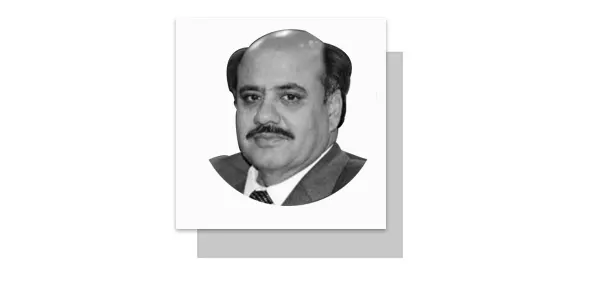THE rapid transformation in the international strategic environment and increasing probability of state-on-state wars have immensely revitalized the concept of collective security.
The United States has been utilizing its political, military, economic and technological power to counter Russian expansion in Eastern Europe and to contain China’s steady rise in contemporary global geopolitics. Indeed, these trends in the international system are not conducive to economically fragile and militarily insecure states such as Pakistan. China assigned great importance to the Shanghai Cooperation Organization (SCO) in addressing the non-traditional security challenges. The SCO focuses on security and economic issues across Eurasia. Its primary objective is to address the ‘three evil forces’—terrorism, separatism and extremism. It has thrived with expansion. It currently has 10 member states, including the initial six members. India and Pakistan were granted full membership of the Organization in 2017. Following them, Iran became a member in 2023 and Belarus in 2024. Additionally, there are two observer states—Mongolia and Afghanistan —and 14 dialogue partners. The SCO has grown to become a ‘big family’ of 26 countries, including member states, observers and dialogue partners.
The SCO’s basic bureaucratic structure consists of two standing bodies: the Secretariat, based in Beijing and overseen by a Secretary General with a three-year term and the Regional Anti-Terror Structure (RATS) with a staff based in Tashkent. Furthermore, the SCO operates on a consensus basis, facilitating member states to harmonize their policies by rising above their bilateral differences. It also allows belligerent neighbours to deliberate on conflicting issues during the sideline leaders’ meetings. China has struggled to strengthen the collaboration among SCO’s members in politics, security, trade and science. Chinese Defence Minister Dong Jun expressed Beijing’s commitment to “promote the Shanghai Spirit, firmly defend international fairness and justice, jointly address security challenges and promote the steady and long-term development of defence and security cooperation in moves to provide stronger support for building a shared home featuring solidarity, mutual trust, peace, prosperity, development, good neighbourliness and friendship, as well as fairness and justice.”
Pakistan actively participates in RATS events because they provide a comprehensive framework that can be instrumental in enhancing the country’s capabilities in combating terrorism and militancy. Through cooperative mechanisms, Pakistani law enforcement agencies enhance their effectiveness in combating evolving threats by improving training in counterinsurgency tactics, cyber intelligence and forensic investigations. The Defence Ministers of SCO met in Qingdao, China, on June 26, 2025. Pakistan’s Defence Minister, Khawaja Asif, attended the meeting and reaffirmed Islamabad’s commitment to combating terrorism and promoting regional peace and security within the framework of the SCO. He said, “Terrorism is a common threat. Pakistan calls on all states to desist from politicizing the joint effort of the International Community to fight the means of terrorism to deflect attention from their internal failures.” He drew the attention of the members towards India’s involvement in terrorist attacks in Balochistan. He said, “We have in our custody … a serving Naval Commander Kulbhushan Jadhav [who] confessed to financing, planning and perpetrating multiple terrorist attacks in Pakistan.”
Indian Defence Minister Rajnath Singh and Chinese Defence Minister Dong Jun held a bilateral consultation on the sidelines of the SCO Defence Ministers’ meeting. They contemplated to seek a “permanent solution” to their decades-old border dispute. However, the Defence Ministers of India and Pakistan did not meet. The tension between New Delhi and Islamabad seriously impacted the outcome of the meeting. The disturbing factor is that SCO Defence Ministers failed to reach a consensus on a joint statement during a recent meeting due to India’s refusal to sign. It was reported that India attempted to link the Pahalgam incident to Pakistan in the joint communiqué. All the members rejected India’s proposal on the Pahalgam issue. Moreover, India’s different stance from other members on Israeli aggression against Iran was not well received. The Indian ruling elite is very upset because the international community, including its close allies, is distancing from its narrative over terrorism and disagreeing with its Pahalgam attack claim and subsequent air and missile strikes on Pakistan.
India has strived to derail the SCO’s significance in recent years. The members understand India’s objective; therefore, they have to stop taking it seriously. At the same time, other members share a convergence of opinion on the menace of terrorism and the complex and volatile international system. Russian Defence Minister Andrei Belousov rightly highlighted that today the world is exposed to “worsening geopolitical tensions.” To conclude, last week’s failure by SCO Defence Ministers to produce a joint communiqué, largely due to India’s obstruction, has significantly undermined the Organization’s credibility. This event, a significant one in the recent geopolitical landscape, has raised serious questions about the future of the Organization and its role in addressing regional security challenges.
—The writer is Prof at the School of Politics and IR, Quaid-i-Azam University, Islamabad.
(jaspal_99@hotmail.com)


















